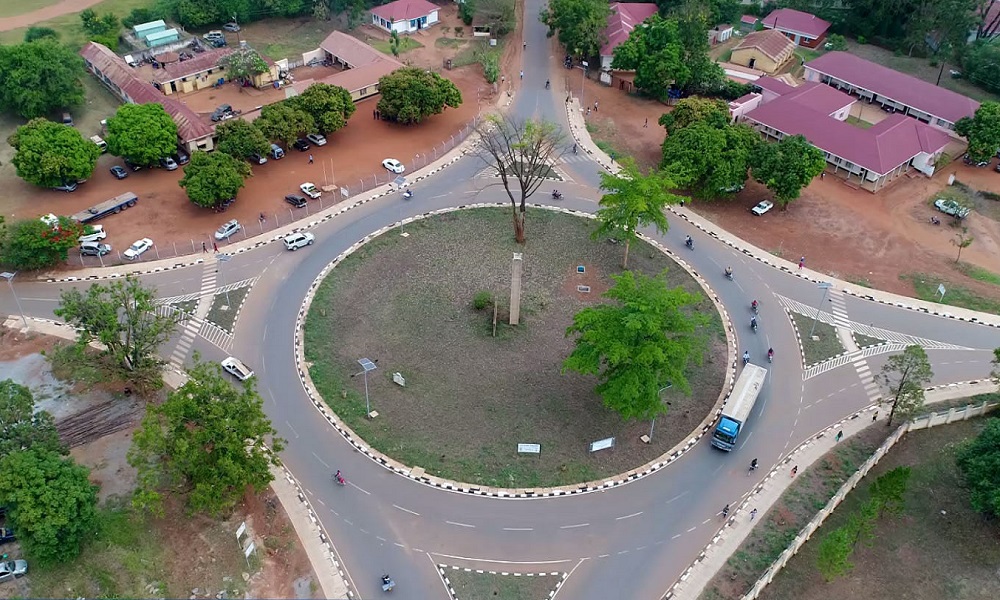Lira City, officially established on April 28, 2020, is the latest addition to Uganda’s regional cities, marking a significant milestone for the Lango sub-region. The City’s operations commenced on July 1, 2020, with a launch event led by Local Government Minister Raphael Magezi at Lira Coronation Park. In this story, DailyExpress’ Ambrose Okai delves into the city’s commitment to climate-smart transformation through urban development.
Ambrose Okai: How is Lira City incorporating climate-smart initiatives in its urban development plans?
Leonard Otika: Lira City has actively integrated climate-smart initiatives into our development strategies. This financial year, we’ve focused on landscaping and greening. Through funding from various sources, including Uganda Road Farm, local revenue, and road rehabilitation funds, we planted 7,635 assorted flowers and 1,973 tree species, such as mahogany, teak, neem, and ashok, in green open spaces and along road verges.
Ambrose Okai: Can you elaborate on the funding allocated for this tree planting project?
Leonard Otika: Under Uganda Road Farm, we spent 3,614,000 Ugandan Shillings, and from local revenue, we allocated 1,633,000. For the USMID project, which focuses on infrastructure development, I need to extract the exact figure, but it’s estimated to be in the range of 100 to 150 million.
Ambrose Okai: To a layperson, what is the significance of greening in the city?
Leonard Otika: Greening enhances the city’s beauty and aesthetic appeal. It also plays a vital role in climate adaptation. Trees act as carbon sinks, absorbing emissions from vehicles and mitigating climate change impacts. Additionally, they create recreational spaces, contributing positively to residents’ well-being.
Ambrose Okai: What challenges does the Lira City Council face regarding tree and plant maintenance?
Leonard Otika: Despite our efforts to sensitize the public about protecting these plants, theft remains a significant issue, especially for valuable species like ashok and palm trees. Stray animals still pose a threat, particularly in areas like Kwania Road. Weather variability and termite infestations also challenge plant survival.
Ambrose Okai: What measures are in place to protect these trees and grasses?
Leonard Otika: We use Thermidor to spray for termites and impound stray animals. Additionally, we conduct awareness campaigns to encourage residents to keep their animals out of the city center.
Ambrose Okai: In terms of achieving a fully climate-smart city, what additional support or resources does Lira City need?
Leonard Otika: A crucial aspect is changing people’s mindsets towards sustainable living. We need to prioritize walking and cycling over vehicle dependency to reduce carbon emissions. Furthermore, planning and budgeting must emphasize environmental conservation alongside infrastructure development.
Ambrose Okai: Since Lira was elevated from a municipality to a city, has the government allocated any funding for the natural resources department?
Leonard Otika: Unfortunately, I haven’t received any grants from the central government since I started here in 2016. Most of our resources come from local revenue, which presents many competing challenges.
Ambrose Okai: How many trees do you intend to plant in the 2024-2025 financial year?
Leonard Otika: The numbers will likely decrease since USMID is no longer funding us. We’ll evaluate how much will be allocated to the natural resources department for tree planting once the new roads committee convenes.
Ambrose Okai: Do residents have a role in this initiative?
Leonard Otika: Yes, we advocate for public-private partnerships. Developers must allocate a percentage of their land for greening efforts, as mandated by the Physical Planning Act. Many community members are also engaged in tree planting and raising nursery beds for commercial purposes.
Ambrose Okai: Can you address how industrialists in Lira City manage industrial waste to protect the community?
Leonard Otika: Waste management is everyone’s responsibility. We’ve received numerous complaints regarding effluent discharge from industries. We are in discussions with them to improve their effluent treatment plants to prevent wastewater from contaminating nearby wetlands. We’re also encouraging innovative recycling methods to reduce water usage costs.
Lira City is striving for a sustainable future through its climate-smart initiatives, emphasizing the importance of community involvement and government support in achieving its goals.
Do you have a story or an opinion to share? Email us on: [email protected] Or join the Daily Express WhatsApp channel for all the latest news and trends or join the Telegram Channel for the latest updates.

